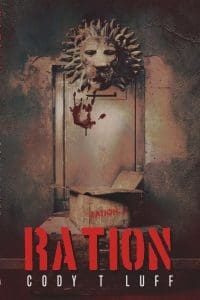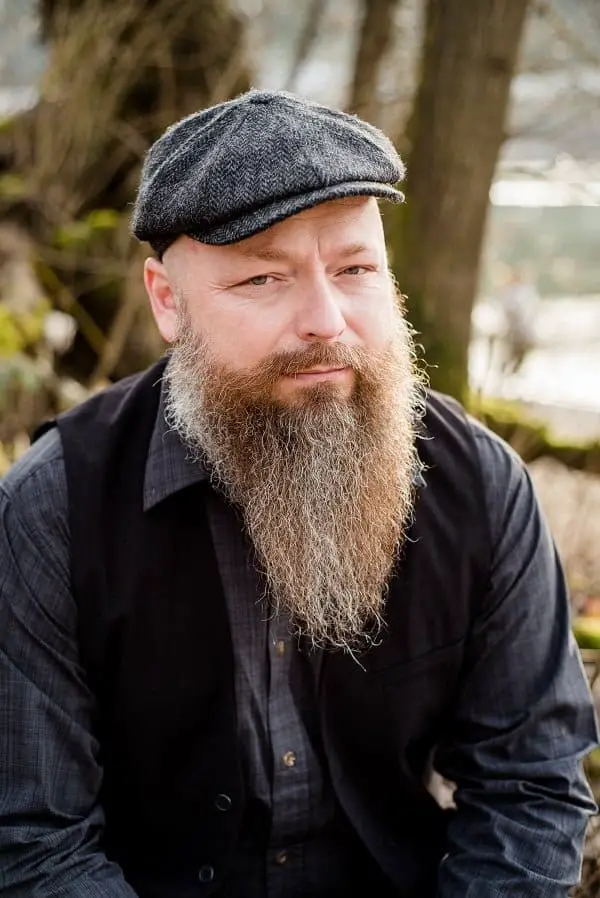‘Ration’ Guest Post – It Starts With A Voice
 It starts with a voice. The sound of the hollow throat of a building or the leaves left behind after the blast of a bomb shook them prematurely from their newly charred branches. It continues with the sensation of the wind chewing at the bones of the dead coyote in the ditch, fur scattered in the dirt ruts of a road freshly gutted by heavy tires and hard soled boots of hundreds of silent soldiers moving beneath a low moon. My senses are flooded with sound, sensation, even the taste ash and dust left behind in the shadow of violence that will never happen on the page of the story I am working on.
It starts with a voice. The sound of the hollow throat of a building or the leaves left behind after the blast of a bomb shook them prematurely from their newly charred branches. It continues with the sensation of the wind chewing at the bones of the dead coyote in the ditch, fur scattered in the dirt ruts of a road freshly gutted by heavy tires and hard soled boots of hundreds of silent soldiers moving beneath a low moon. My senses are flooded with sound, sensation, even the taste ash and dust left behind in the shadow of violence that will never happen on the page of the story I am working on.
The process of building is remarkably similar to planting bean shoots and watching the green vines grow. The details are very rarely clear to me in the beginning. Like the bean, I start with something simple, something vaguely intentional. I spend far too much of my time as a writer day dreaming about places completely empty of characters, mental sketches of cities, mountain ranges, subway tunnels, all empty, all silent. These are the seeds of a world, waiting for me to lose focus enough for them to sprout.
Once I have imagined these places, which usually happens during a long commute or a long stretch working at my desk, I add the fertilizer necessary for my world to grow. I ask the terrible question that all world builders love to hate and hate to love: why? Why is there a dead coyote in the ditch of my mind? Why are the soldiers on the move in the middle of the night? Why is it Fall? The question of why is the single most dangerous question in world building. It opens a never-ending floodgate of information, one that can drown a writer and eventually drown their reader or one that can freeze a world solid before it begins to grow.
How many whys is too many? How much do I need to know before I start my story in the first place? This is the magic trick. In my own writing practice, I have discovered that you can’t know too much about your world but as a writer, you must share carefully with your reader. Your world is full of secrets. My coyote died of starvation because the war has bleached the land with hatred and fire. The soliders move at night because the balloons far above bristle with snipers wrapped in leather military coats lined in fur. The roads are worn things, army after army flowing back and forth over their churned bodies, ground lost and gained over months of death. How much of this does my reader need? This question is difficult to answer and in my experience is one driven by characters rather than the need for information. But how much of this does the writer need? The answer is easy, all of it. Every detail is necessary for the world to fill every paragraph.
Watching my worlds grow, asking why as each detail emerges is a meditative experience, a delicious form of daydreaming that feels a little like slipping down the rabbit hole but like all things creative it has its dangers. Filling my worlds with people requires I open these empty places to the emotions and needs that come from the histories generated by my why questions. Inviting the first character into my world requires that I speculate their place and the risks they must face. This is also the moment my story, much like the bean in my previous comparison, twists for the first time. Characters produce plot, a slightly toxic side effect of world building, a type of drug that is necessary for the consumption of stories.
Characters rarely arrive in my creative process as nebulous beings. They stride in and demand things. They might demand to put on a uniform and notice the dead coyote in the ditch and express their disgust, all the while worrying over their infant son back home, left with a grandparent to tend while the war spins on and on. They demand to see the things I have created and they demand to react to them, creating a disharmony that will eventually lead to my plot. The world itself will eventually harden around these invaders, reacting to them, growing with them and eventually becoming a character itself leaving me with another blank spot in my mind to fill with yet another seed. A cycle that is a little addictive and perhaps a more than a little strange.

Cody Luff
Cody’s stories have appeared in Pilgrimage, Cirque, KYSO Flash, Menda City Review, Swamp Biscuits & Tea, and others. He is fiction winner of the 2016 Montana Book Festival Regional Emerging Writers Contest and served as editor of the short fiction anthology Soul’s Road. Cody completed an intensive MFA in Creative Writing from Goddard College. He teaches at Portland Community College and works as a story editor. Cody grew up listening to stories in his grandfather’s barbershop as he shined shoes, stories told to him at bedsides and on front porches, deep in his father’s favorite woods, and in the cabs of pickup trucks on lonely dirt roads. Cody’s work explores those things both small and wondrous that move the soul, whether they be deeply real or strikingly surreal.
Website: www.codytluff.com
- About the Author
- Latest Posts
Stuart Conover is a father, husband, published author, blogger, geek, entrepreneur, horror fanatic, and runs a few websites including Horror Tree!












